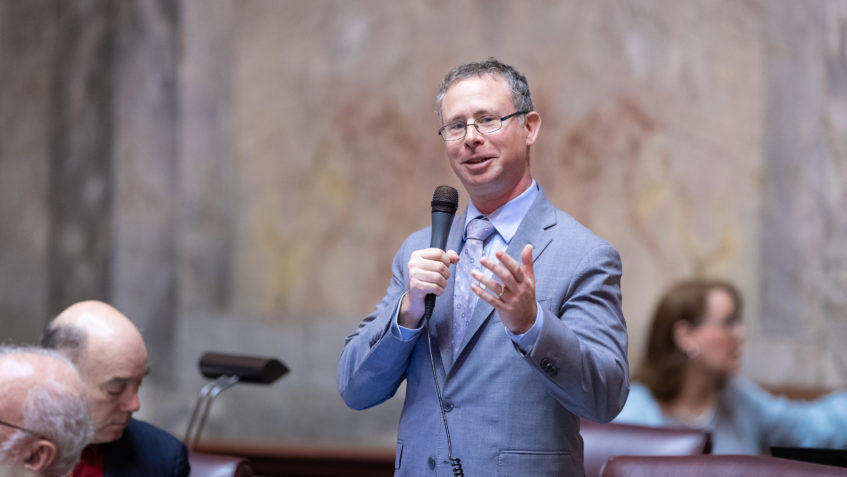FOR IMMEDIATE RELEASE – April 11, 2023
OLYMPIA— Legislation sponsored by Sen. Jesse Salomon (D-Shoreline) is putting Washington on the road to allow access to regulated psilocybin services for wellness purposes.
Senate Bill 5263, which passed the House on an 87-10 vote with broad bipartisan support, aims to provide advice and recommendations on developing comprehensive regulatory framework for access to regulated psilocybin services for people over 21. The bill previously passed the Senate by a vote of 41-7.
This legislation will create a task force and a state board to research the creation of a regulated psilocybin program. The House added a pilot program creating a program based in the University of Washington to use psilocybin to serve veterans and first responders with post-traumatic stress disorder (PTSD), depression and substance use disorder. Although the bill as initially filed by Salomon saw many changes when moving through committees and both chambers, Salomon considers this legislation to be important progress made.
“This bill is a big step in the right direction,” said Salomon. “Although this topic is new to many legislators, this bill will facilitate well-informed conversations to create a safe and regulated process for psilocybin access in a near future. Access to psilocybin can unlock the door to a brighter future for those struggling with mental health disorders.”
Psilocybin has been shown in FDA-approved studies to provide users a safe and effective method to alleviate symptoms of depression, addiction, PTSD and other mental health disorders. It has also shown to be effective at easing fear and anxiety in people with terminal illness and has also proven to increase emotional empathy, creative thinking, mindfulness, and insightfulness in patients.
In a state where many residents live with mental illness and a large number have seen their mental health decline due to the COVID-19 pandemic, psychedelic usage — monitored by trained professionals — is a key to healing for some people.
This bill has gained broad media attention and support across the political spectrum since the beginning of legislative session.
Because the bill was amended in the House, it now heads back to the Senate for concurrence.



